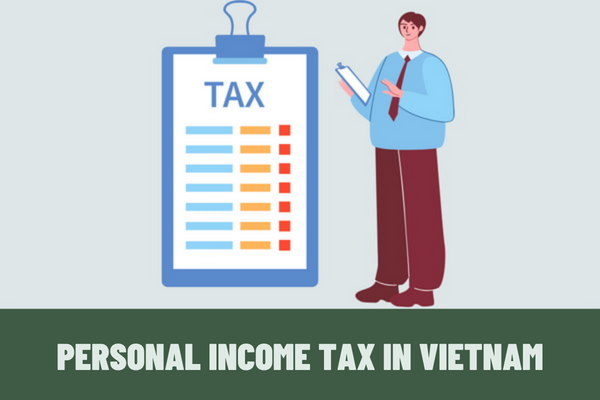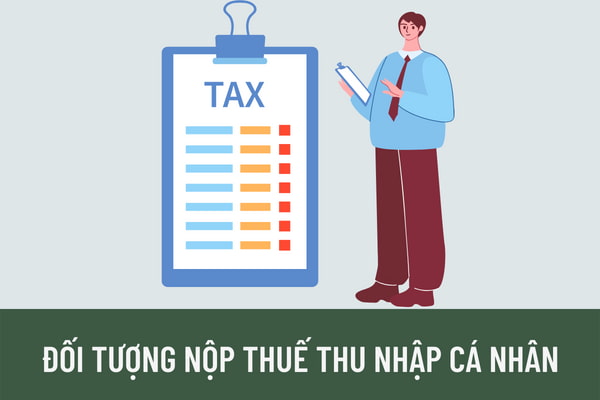How many days must a resident subject to personal income tax be present in Vietnam?
How many days must a resident subject to personal income tax be present in Vietnam?
According to the provisions at point a, clause 1, Article 1 of Circular No. 111/2013/TT-BTC (amended by Article 2 of Circular No. 119/2014/TT-BTC), a resident is a person that meets one of the conditions below:
+ He/she has been present in Vietnam for at least 183 days in a calendar year or for 12 consecutive months from the first day of his/her presence in Vietnam (the date of arrival and date of departure are considered 01 day). The date of arrival and date of departure depends on the certification of the immigration agency on the passport (or laissez-passers) when that person enters and leaves Vietnam. If the person enters and leaves Vietnam within one day, it will be considered a day of residence.
A person in Vietnam defined in this Point is the presence of that person in Vietnam’s territory.
+ He/she has a regular residence in Vietnam
Thus, a resident who is subject to personal income tax must be present in Vietnam for at least 183 days in a calendar year or for 12 consecutive months from the first day of his/her presence in Vietnam or satisfy the conditions for a regular residence in Vietnam as prescribed at Point b, Clause 1, Article 1 of Circular No. 111/2013/TT-BTC.

How many days must a resident subject to personal income tax be present in Vietnam?
What types of income are subject to personal income tax in Vietnam?
According to the provisions of Article 3 of the 2007 Law on Personal Income Tax in Vietnam (amended by Clause 1, Article 1 and Clause 2, Article 2 of the 2014 Law on Amendments to Tax Laws), including:
- Incomes from business include:
+ Incomes from manufacturing, sale of goods or services;
+ Income from freelance works of individuals having licenses or practicing certificates as prescribed by law.
A sole trader’s income of VND 100 million per year or less is not considered income from business prescribed in this Clause.
- Incomes from salaries and wages, including:
+ Salaries, wages and amounts of similar nature;
+ Allowances, subsidies, except for amounts: Those paid under legal provisions on preferential treatment of persons with meritorious services; defense or security allowances; hazard or danger allowances for persons working in branches, occupations or jobs at places where exist hazardous or dangerous elements; allowances for attraction of laborers to work in certain branches or in certain regions specified by law; allowances for sudden difficulties, allowances for laborers having labor accident or suffering from occupational disease, lump-sum maternity or child adoption allowances; allowances for working capacity loss, lump-sum retirement allowances, monthly survivorship allowances and other allowances as prescribed by law on social insurance; severance and job-loss allowances specified in the Labor Code; subsidies of social relief nature and other allowances, subsidies without nature of salaries, wages as prescribed by the Government.
- Incomes from capital investment, including:
+ Interests;
+ Dividends;
+ Incomes from capital investment in other forms, except for government bond interests.
- Incomes from capital transfer, including:
+ Incomes from transfer of capital holdings in economic organizations;
+ Incomes from transfer of securities;
+ Incomes from transfer of capital in other forms.
- Incomes from transfer of real estate, including:
+ Incomes from transfer of rights to use land and assets attached to land;
+ Incomes from transfer of right to own or use residential houses;
+ Incomes from transfer of right to lease land or water surface;
+ Other incomes earned from transfer of real estate under any form.
- Incomes from won prizes, including:
+ Lottery winnings;
+ Sales promotion winnings;
+ Prizes won from betting;
+ Winnings in prized games and contests and other forms of winning.
- Incomes from copyright, including:
+ Incomes from assignment or licensing of intellectual property objects;
+ Incomes from technology transfer.
- Incomes from commercial franchising.
- Incomes from inheritances that are securities, capital holdings in economic organizations or business establishments, real estate and other assets subject to ownership or use registration.
- Incomes from gifts that are securities, capital holdings in economic organizations or business establishments, real estate and other assets subject to ownership or use registration.
In which case can individuals be entitled to tax refund?
According to the provisions of Clause 2, Article 8 of the 2007 Law on Personal Income Tax in Vietnam, individuals are entitled to tax refund in the following cases:
- Their paid tax amounts are larger than payable tax amounts;
- They have paid tax but their taxed incomes do not reach a tax-liable level;
- Other cases decided by competent state agencies.
LawNet
